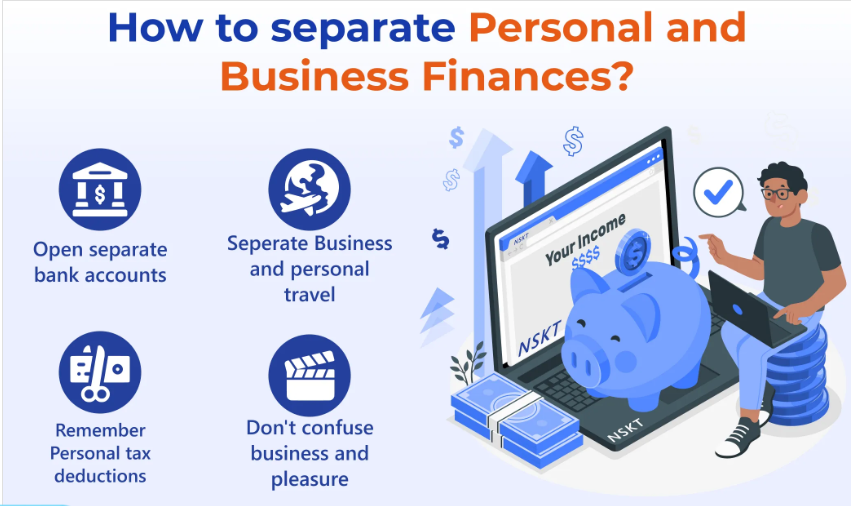How to Separate Personal and Business Finances
When you’re running a business especially a small one it’s tempting to use the same account for both personal and business expenses. It feels convenient… until tax season hits or you need a loan.
Mixing finances can cause cash flow confusion, tax headaches, and even legal trouble. Here’s how to draw a clear line between your personal and business money.
1. Open a Dedicated Business Bank Account
This is the single most important step.
-
Use it for all business income and expenses—no exceptions.
-
Choose a bank that offers features like expense tracking, mobile deposits, and integrations with accounting tools.
💡 Pro tip: Many banks offer free or low-fee business checking accounts for startups.
2. Get a Business Credit Card
Using a separate card for business purchases helps you:
-
Track expenses easily
-
Build business credit
-
Earn rewards or cashback on business spending
Just remember pay it off in full each month to avoid interest.
3. Pay Yourself a Salary or Draw
Instead of dipping into business funds when you need personal money, set up a regular transfer to your personal account.
-
Sole proprietors: Take an owner’s draw.
-
LLCs/Corporations: Pay yourself a set salary.
This keeps your cash flow predictable and your records clean.
4. Keep Receipts and Records Separate
Store business receipts separately from personal ones—either in a physical file or a cloud storage system.
-
Apps like Expensify or QuickBooks can scan and categorize receipts automatically.
5. Use Accounting Software
Tools like FreshBooks, QuickBooks, or Xero make it easy to:
-
Categorize transactions
-
Track income and expenses
-
Generate reports for taxes or loan applications
6. Don’t Co-Mingle Funds
If you accidentally pay a personal bill from your business account (or vice versa), record it properly as an owner’s draw or contribution—not a business expense.
7. Work with a Professional
An accountant or bookkeeper can:
-
Ensure proper separation of funds
-
Prepare accurate tax returns
-
Advise on deductions you might otherwise miss
Why It Matters
Separating your finances:
-
Makes tax filing easier and more accurate
-
Protects your personal assets if your business is sued
-
Builds credibility with lenders and investors
-
Gives you a clearer picture of business profitability


